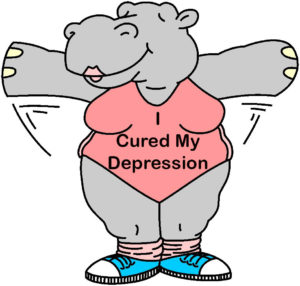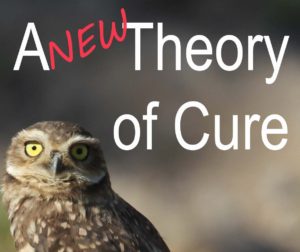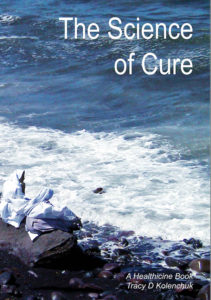 Can cancer undergo spontaneous remission? Sometimes it happens. Can depression, diabetes, arthritis, dementia, undergo spontaneous remission? Sometimes it happens. Is it magic? No. Magic only exists when we don’t understand.
Can cancer undergo spontaneous remission? Sometimes it happens. Can depression, diabetes, arthritis, dementia, undergo spontaneous remission? Sometimes it happens. Is it magic? No. Magic only exists when we don’t understand.
Conventional medicine does not understand spontaneous remission.
Spontaneous remission is trivial. How does it work?
Spontaneous remission is trivial. How does it work? Share on X
Spontaneous remission exists, but not spontaneous remission of disease. It’s spontaneous remission of a cause of disease. Unfortunately, conventional medicine studies statistical causes to death, while rarely studying and rarely addressing specific causes – so spontaneous remission is not understood.
Depression
Let’s look at a simple example and then expand it to the complex cases. Depression is one of many diseases with many causes and no known cure. Sometimes, it seems to undergo spontaneous remission. What’s going on?
According to the book The Depression Cure, by Dr. Stephen S. Ilardi, depression has 6 basic causes. Dr. Ilardi doesn’t give them specific names, so I’ve created cause names. I’ve put Ilardi’s wording in brackets followed by a clarification:
- Diet (dietary omega 3 fatty acids -deficiency or imbalance)
- Mind and Spirit (engaging activity – lack of balance – rumination)
- Exercise of Body (physical exercise – lack of)
- Sunlight (sunlight – lack of)
- Community (social support – lack of or negative)
- Sleep and Rest (sleep – lack of)
Dr Ilardi uses the word cure in the book title, but tends to avoid the word cure in the text, apologizing with “The Depression Cure. Admittedly this is a bold title.” and closing the book with the hopeful “We can live the depression cure.“. Dr Ilardi’s book gives detailed descriptions of each cause and provides prescriptions to cure – but none are medicines.
Dr Ilardi does not, however, discuss spontaneous remission. Why not? Because – when the cause is understood – there is no spontaneous remission of disease, although spontaneous remission of cause is commonplace. When the cause undergoes spontaneous remission, the disease can disappear. It’s trivial.
Simple Disease: Simple Spontaneous Remission
The simplest example is cause 4, sunlight. People who suffer from SAD (Seasonal Affective Disorder) depression don’t suffer in summer, the cause undergoes “spontaneous remission” in spring, and the disease fades away.
It’s not hard to see how each cause might change over time, appearing to undergo spontaneous remission, causing the disease to appear to undergo spontaneous remission.
Diet’s drift. Over time our diet tends to be relatively stable, and then it changes. Sometimes it changes because our relationships change. We leave home, or get married, or move from living alone at home to assisted living. Sometimes we change our diet intentionally – positively or negatively. Dietary changes can be dramatic. If diet was the cause of a case of depression – the depression can disappear when the diet changes. It’s not spontaneous remission when we understand the cause.
Mind and Spirit (engaging activity – lack of balance – rumination) can change for many reasons. We might intentionally change our mental patterns, away from rumination. We might become involved in activities that engage our mind, causing negative patterns to fade. When the cause fades or disappears, it’s not spontaneous remission. When the cause disappears, the disease fades.
Exercise of Body (physical exercise – lack of). We know that walking eases and can even cure depression. We might note that walking can address at least 2, possibly three causes – lack of exercise, lack of sunlight, and possibly aid mind and spirit issues as well. It’s not spontaneous remission, it’s addressing the cause. Regular walking, and many other exercise routines, also engage the mind away from rumination. When the cause is addressed, the disease is cured.
Sunlight (sunlight – lack of). When the sun comes out, depression hides. When the sun hides, depression emerges from the shadows. It’s a bit harder to control the sun – it disappears and reappears spontaneously, and depression caused by lack of sunlight appears and spontaneously disappears with it. It’s not magic, it’s not spontaneous. It’s cause and effect. In this case, a medical device – a bright light, can also cure, although conventional medicine refers to it as a treatment, not a cure – even when it cures.
Community (social support – lack of or negative). Our communities and our interactions with our communities ebb and flow throughout our lifetimes. When community involvement fades or becomes negative, depression can occur. When our communities engage us and support us, depression fades away. Cause and effect. Not medicine.
Sleep and Rest (sleep – lack of). We all lead busy lives. We want to lead busier lives. There are people who simply “don’t want to sleep” because they feel they are missing out on life while asleep. Lack of sleep leads to many illnesses – including depression. And when sleep patterns change, depression might get worse, or fade away.
Compound Disease
Simple depression can fade quickly, often before it is diagnosed. Many people suffer minor effects of SAD, but then the sun comes out, and the illness fades. Throughout our lives, we might all suffer from dietary deficiencies, excessive rumination, lack of exercise, sunlight, community, or sleep. We might get depressed, but we don’t get diagnosable depression.
Each cause only creates a disease when it reaches a threshold. The causal threshold is different for different people and changes over time. When the cause rises above the threshold, depression occurs. But then it gets complicated.
What happens when two, or three, or four, or five, or even six causes of depression occur at once?
Two Cures
Two causes might result in depression when both are at a lower threshold. This creates an interesting situation. Depression might be caused by minor dietary issues – which would not cause depression on their own, combined with a minor lack of sleep or rest – which would not cause depression on its own.
This case of depression has two cures. Neither cause can be cured with a medicine. No medicine can cure a cause. When the patient’s diet is changed, the depression will be cured. When the diet changes without intention – the depression might appear to undergo spontaneous remission. When the sleep patterns change, the depression will be cured. When the sleep is changed without intention to cure – the depression might appear to have undergone a spontaneous remission. There is no definition of, no diagnostic technique for depression cured.
In each case, the other cause still exists – but not at a level severe enough to result in a diagnosis of depression. The patient might be in a semi-depressed state, where a rise in any of the 6 causes can lead to depression more easily than in a healthy patient. Perhaps many of us are semi-depressed, but don’t know it.
A pre-depression state can exist for each of the 6 causes, creating a condition that can easily cause depression that rises and fades, as other causes change over time. It can be more complicated.
Multiple Causal Depression
It is possible to have depression from all 6 causes at once. It is possible for a single patient diagnosed with depression to be suffering from a crappy diet (from a depression perspective), from negative mental processes, from lack of healthy exercise, lack of exposure to sunlight, poor community involvement, and lack of sleep – all at the same time. In these cases, the signs and symptoms of depression might rise and fall depending on 6 different causal factors.
Curing might seem impossible. Every illness can be cured. - The Healthicine Creed. Share on XEvery illness can be cured – the healthicine creed.
Most people who are diagnosed with depression probably don’t have just one active cause. It is unlikely that anyone diagnosed with depression is suffering from all 6 causes. Most people are somewhere in-between, with 2 to 5 causes of depression. Each combination can be viewed as a unique cause of depression, for a total of 6 factorial different causes of depression. There are at least 720 different causal combinations for depression. In each case, no medicine can cure, because no medicine addresses the cause. In each case, the causes might change without intention – spontaneous change – resulting in the appearance of partial or complete spontaneous remission.
Treatment with symptomicines, treatment of symptoms with drugs, with no intention to cure, does not address a cause and can allow causes to accumulate over time, leading to a case of depression that is more difficult to cure. Treating depression with symptomicines with no intention to cure, can lead to physical damage to body, mind, and spirit, that lowers the patient’s depression thresholds, making depression more likely to occur.
Elementary or Compound Illness
Sometimes a case of depression, even a case of depression with multiple causes, can be cured by addressing a single cause. An illness cured by addressing a single cause is an elementary illness, with an elementary cause.
Sometimes, two or more cure actions are necessary to cure a single disease. In these cases, the depression disease was compound, having a compound cause consisting of two or more cause. A compound disease requires a compound cure consisting of multiple cure actions.
Are each of these 720 cases of depression curable? Of course, they are. Every illness can be cured. Some are easy to cure. Some require complex cures and might take significant amounts of time.
How can we tell when depression is Cured?
Conventional medicine can diagnose depression. The DSM (Diagnostic and Statistical Manual of Mental Disorders) gives guidelines for diagnosing depression. But it does not give any guidelines for diagnosing cured. Depression cured is not defined medically, cannot be tested, cannot be proven. Depression cures are lost.
There are no guidelines for diagnosing depression cured. When cured cannot be tested, cannot be proven, every cure looks like remission. When remission is not understood, when the cause is not understood – every improvement and every cure looks like placebo effect or spontaneous remission.
It might be spontaneous remission of the cause. It can be intentional remission of (addressing) cause.
Depression is cured when the cause has been addressed. The cause has been addressed when depression has been cured. It’s a circle. The only exit is a cure. It’s the same for all cures.
Spontaneous remission of disease only exists when we don’t understand the cause.
Spontaneous remission of cause exists when we don’t realize we have addressed the cause.
Spontaneous remission is trivial. Cause can be complex. Disease is complex.
I am not a doctor. Dr. Stephen S. Ilardi in The Depression Cure provides a comprehensive technique and plan to cure depression. It’s an excellent book that can be used DIY (Do It Yourself) or with a coach, to cure depression – not to provide “spontaneous remission“. It’s a book I need to add to my list of Books That Cure. There is another book to cure depression in that list: A Mind of Your Own: The Truth About Depression and How Women Can Heal Their Bodies to Reclaim Their Lives by Kelly Brogan, M.D., Kristin Loberg. Dr. Kelly Brogan suggests a similar list of cure causes, including diet, sleep, exercise, but adds fluoride, and thyroid function – a problem more likely to be encountered women, her target audience. Both doctors provide considerable evidence that drugs do not perform better than placebos except in very exceptionally severe cases.
Spontaneous Remission or Placebo Effect?
What’s the difference between spontaneous remission and placebo effect? Are they the same, or different?
Spontaneous remission and placebo effect are both real, positive effects on the patient and their disease – where we do not understand the cause. When we understand the cause, it’s no longer spontaneous remission, it’s cause and effect. When we understand the cause, it’s not a placebo effect. It’s cause and effect. We need to BUST the placebo effect, and we need to bust spontaneous remission. We need to bust placebo effect, and we need to bust spontaneous remission. Share on X
to your health, tracy
Founder: Healthicine


